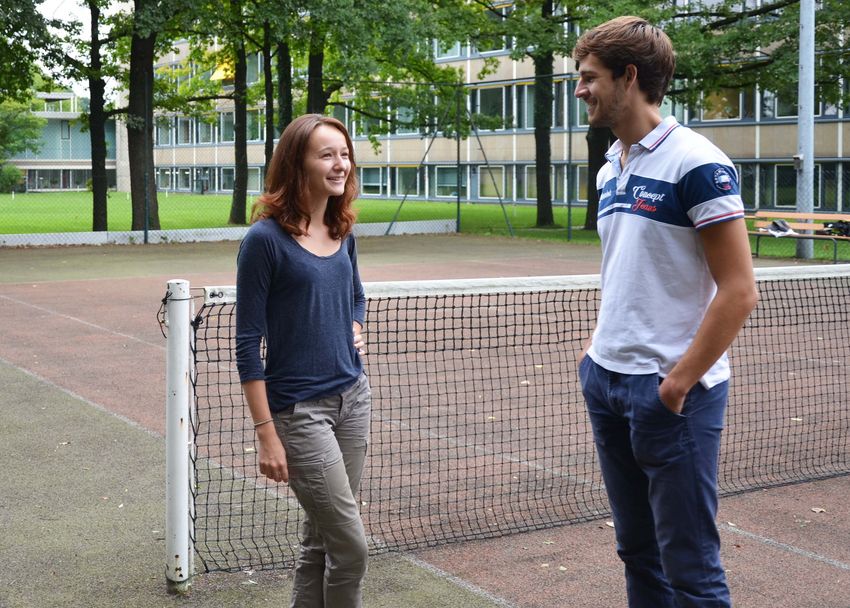How come you decided to do your internship at the Max-Planck-Institute for Physics?
Aude: For students at our university a three-month-research internship abroad is mandatory. As I was interested in particle physics I looked for suitable places and found the MPP, where I applied. Someone forwarded my application to Susanne Mertens– and there I was.
Paul: I had already heard about the Max Planck Institute for Physics, it was one of my two choices along with another laboratory in the U.S. Eventually, administrative burden and my personal taste made me decide to do my internship with the KATRIN/TRISTAN group.
So you came here together?
Aude (laughs): No, that was pure coincidence!
Tell me about your study.
Aude: There are some basic subjects we have to study like quantum mechanics or statistical physics. Besides these we can specialize in some other subjects. So we chose particle physics, astrophysics, optical quantum physics.
What were your research activities here?
Paul: I was involved in the noise characterization of prototypes for a new detector and read-out system called TRISTAN, designed to look for sterile neutrinos. When developing instruments in particle physics noise characterization is essential.
We performed radiation tests with a high intensity electron gun to study the behavior of the detector material at the Karlsruhe Institute for Technology, where the KATRIN detector and the TRISTAN instrument will be installed eventually. Back here I performed further measurements so as to characterize the noise after the irradiation test. It was a great experience – both to work in the lab and to interact with the PhD students at MPP.
What about you, Aude?
Aude: I worked on the MAJORANA experiment aimed at the search for the neutrinoless double beta decay. Most of my work was on simulations and then on comparisons using data from an experiment at the Technical University of Munich and analyze those. I also had the chance to visit different experiments in the Gran Sasso Underground Laboratory in Italy.
There, I attended a scientific meeting for LEGEND, a collaboration of the GERDA and the MAJORANA experiment. It was an interesting experience to see how researchers work: Everyone is focused on a specific small part of an experiment and in the end they have to put it all together. Before, I had no idea how difficult it is to mount an experiment.
Do you plan to continue with particle physics?
Paul: I like particle physics, but I don’t know yet – it was my first glimpse into “real” research. In the second year of my Master’s degree, I will study astrophysics.
Aude: I have always been interested in particle physics and still am, but I will certainly try other subjects as well, for example astrophysics.
How was your time with the group? How was summer in Munich?
Paul: It worked very well, both here at the institute and outside. It was a very friendly and pleasant atmosphere. We did a lot of things and hung out together.
Aude: Like going to beergardens.
Paul: We tried to test as many different types of beer as possible.
Aude: And of course we enjoyed the English Garden, having a bath in the Isar or barbecues at the river.
What are your next plans?
Paul: I’ll go to Venice first. And then, let’s see!
Aude: I’ll go hiking with friends and will then spend some time in Croatia – and maybe come back to Munich in September.
